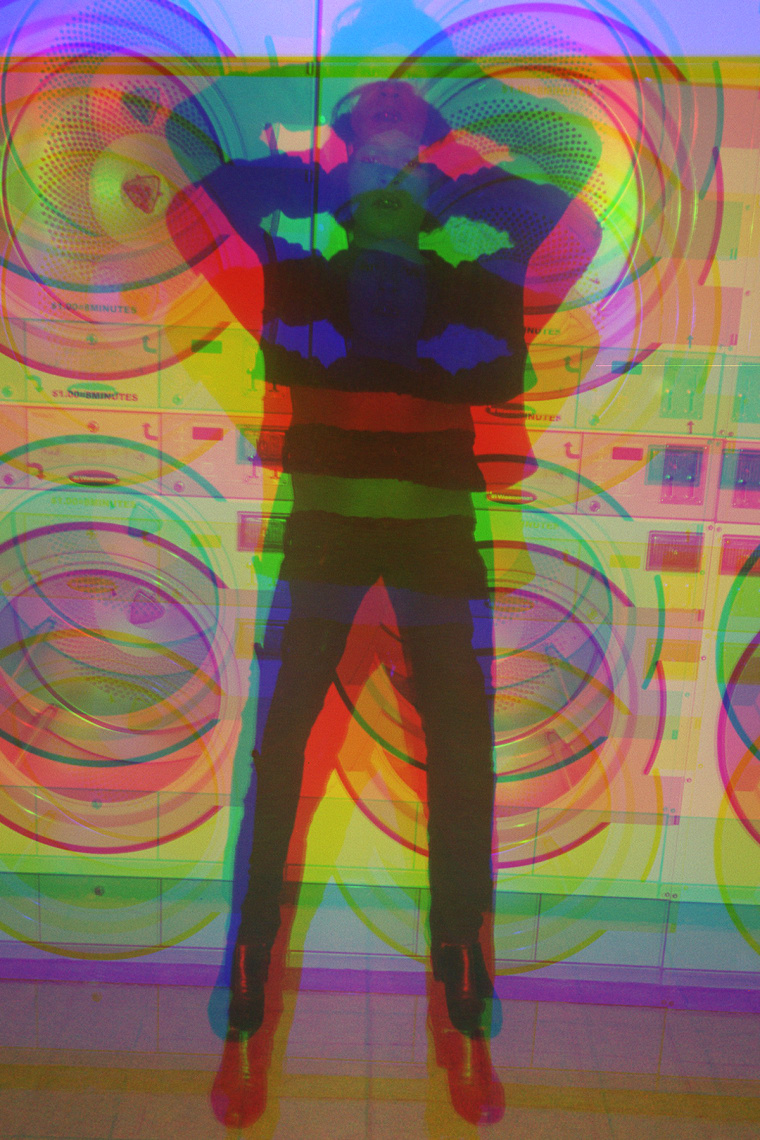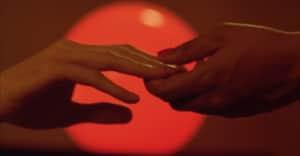 Photo by Tessa Smith
Photo by Tessa Smith
On 2013’s Soft To The Touch, Montreal musician and performer Jef Ellise Barbara glamorously sashayed through psych, disco, dance-pop, and soul. With a velvet glove, Barbara tugged at the magical threads hiding in sex, loneliness, confusion, Florida, and more, the album confirming them as a Technicolour force within the city’s independent music scene: behind every carefully curated outfit and twirl you saw in Barbara’s performances was the same grit and resourcefulness that defines many DIY releases.
A self-imposed hiatus – prompted by a bad label situation and transitioning, among other things – ended this summer with a brand new project: Jef E. Barbara’s Black Space, a band comprised entirely of musicians of African descent. But Montreal’s indie scene wasn’t exactly bustling with candidates for this new endeavour. “I’ve had to find drummers in church basements,” said Barbara, on the phone from their hometown. “I badly wanted to create a black space with black musicians, but they were not immediately available in my music community.”
Still, this specific lineup was vital to Barbara’s mission: to get young black people creatively exploring forms that are outside of what they’ve been told they can excel at. “There is a sense of blackness a lot of black artists must abide by; one that aligns with R&B or hip-hop,” Barbara said. “I love R&B and hip-hop, but [I wanted] to present a diverse range of artistic expressions. The objective is partially to normalize blackness or remove it from a racialized perspective. The songs don’t talk about being black or racial pride, we just happen to be black.”
Ahead of a show in Toronto at Camp Wavelength on August 19, Barbara talked about this, as well as the identity politics economy, and, of course, Montreal’s sweetheart P.K. Subban.
JEF ELLISE BARBARA: For the longest time, I tried to be oblivious to many issues that were affecting me: race, the fact that I’m trans, and the fact that I’m feminine. So I decided to confront those things by starting the Black Space. It was a way to celebrate myself and my blackness, and the blackness of other people who might have the same ideas around navigating a space that is mostly white and doesn’t celebrate them for who they are.
I was born and raised in Montreal, and the issue of black representation has always been very real to me. To see the advent of [former Montreal Canadiens player] P.K. Subban and how he was talked about by not only the media, but people in the street made me feel like he’d reached a level no other black person [in Quebec] had reached before. I think that P. K. Subban represented Quebec in a very positive way. Quebec society is so deeply attached to a traditional identity out of wanting to defend its culture and heritage, so issues of racial exclusion are, unfortunately, not at the forefront. It creates cultural spaces that are not — well, if you want me to use the word “inclusive,” there it is. There’s not a lot of POC representation. I think that P. K. Subban represented Quebec in a very positive way: He was a big deal for me.
For me, body expression is an extension of theatre and has a lot of value in the context of the music
I like to attribute the growing discussion of identity politics to the internet, but it might just be a trend. In Montreal if we think of the scene as centered around “indie music,” or whatever, I saw it go from ironically disrupting the stance an older generation had on liberal issues — like VICE for example — to being actually conservative, to developing an ironic engagement with culture created or associated with minorities, and now really wanting to be inclusive. That’s why I don’t know how long [the concern with identity politics] going to go. A lot of focus is still on white people, and one of my reasons for doing the Black Space show is to impact black people and young black people who want to see different images or possibilities. I’ll reach my goal if I manage to do that.
Since I’ve yet to find all the black musicians I need for the live show, I have no choice but to stand behind the keyboard for the songs to happen onstage. And I’m a person who likes to use their body. Traditionally speaking, rock, does not value femininity or dance. You get white people saying Prince is so much better than Michael Jackson, because Michael used his body more [and that’s] somehow inferior. Dance is something that’s very rooted in African culture. It’s valued differently. I’ve always been a singer that uses their body to convey emotions, and that was not celebrated because it was seen as being superficial, or that I don’t know how to play an instrument or sing. For me, body expression is an extension of theatre and has a lot of value in the context of the music. No one can come up to me now and say that music, whether it’s mainstream or independent, is [solely]about music. It’s about acting, fashion, politics — it’s about so much more. So even though I have to be behind the keyboard [right now], I’ll still make it look good.
